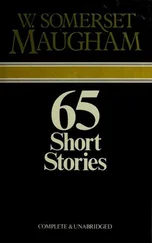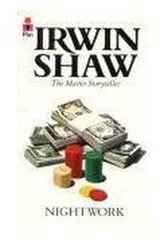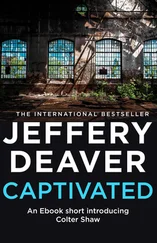Irwin Shaw - Short Stories - Five Decades
Здесь есть возможность читать онлайн «Irwin Shaw - Short Stories - Five Decades» весь текст электронной книги совершенно бесплатно (целиком полную версию без сокращений). В некоторых случаях можно слушать аудио, скачать через торрент в формате fb2 и присутствует краткое содержание. Год выпуска: 2013, Издательство: Open Road Media, Жанр: Современная проза, на английском языке. Описание произведения, (предисловие) а так же отзывы посетителей доступны на портале библиотеки ЛибКат.
- Название:Short Stories: Five Decades
- Автор:
- Издательство:Open Road Media
- Жанр:
- Год:2013
- ISBN:нет данных
- Рейтинг книги:5 / 5. Голосов: 1
-
Избранное:Добавить в избранное
- Отзывы:
-
Ваша оценка:
- 100
- 1
- 2
- 3
- 4
- 5
Short Stories: Five Decades: краткое содержание, описание и аннотация
Предлагаем к чтению аннотацию, описание, краткое содержание или предисловие (зависит от того, что написал сам автор книги «Short Stories: Five Decades»). Если вы не нашли необходимую информацию о книге — напишите в комментариях, мы постараемся отыскать её.
Short Stories: Five Decades — читать онлайн бесплатно полную книгу (весь текст) целиком
Ниже представлен текст книги, разбитый по страницам. Система сохранения места последней прочитанной страницы, позволяет с удобством читать онлайн бесплатно книгу «Short Stories: Five Decades», без необходимости каждый раз заново искать на чём Вы остановились. Поставьте закладку, и сможете в любой момент перейти на страницу, на которой закончили чтение.
Интервал:
Закладка:
“No,” she said. “I don’t travel any more.”
She turned to the neighbor on her right and Martin didn’t get a chance to ask her why she didn’t travel any more, and the sentence stood like that, flat, definite, a statement of policy. For the rest of the meal the conversation was general at the table and Martin joined in it sporadically, his eyes from time to time straying over to the table at which Bowman presided, in his white apron, flushed, speaking a little loudly, busy with the wine bottle, laughing easily at his guests’ jokes, never looking in the direction of the table at which his wife sat, next to Martin.
It was nearly midnight and some of the guests had already left when Martin finally got a chance to talk to Bowman alone. Bowman was standing at a table that had been put alongside the wall of the house to serve as a bar and was pouring himself a brandy. He had taken his apron off and after he had poured the brandy he stood there staring down at it, his face pale once more and suddenly fatigued and remote, as though for the moment he had forgotten the party, his role as host, his departing guests. Martin came up to him, ready to use the opening he had been planning for the last half-hour.
“Mr. Bowman,” he said.
For a second or two Bowman didn’t seem to hear him. Then he shook himself, almost imperceptibly, and raised his head and put on the easy, friendly smile he had been using all evening.
“Harry, boy,” Bowman said, “Harry.”
“Harry,” Martin said dutifully.
“Your glass is empty, boy,” Bowman said, reaching for the brandy bottle.
“No, thank you,” Martin said. “I’ve had enough.”
“You’re right,” said Bowman. “Brandy keeps you from sleeping at night.”
“I’ve been thinking,” Martin said, “about your problem.”
“Uh … what’s that?” Bowman squinted at him.
“About your tennis court,” Martin said quickly. “I mean about the fact that it’s on a rise and as soon as a wind comes up, like today …”
“Oh, yes,” Bowman said. “It’s a nuisance, isn’t it? I guess we put it in the wrong place, exposed to the north, but the builder insisted. I don’t know, something about drainage.…” He waved his hand vaguely, then sipped his brandy.
“You know,” Martin said, “I think I could show you how to fix it.”
“Oh, you could? Good. Very kind of you.” Bowman was speaking a little thickly now. “You must come over some day and we’ll …”
“Well,” Martin said, “I’m leaving tomorrow and …”
“Oh, yes, of course.” Bowman shook his head as though irritated with himself for his lapse of memory. “France. The city of light. I forgot. Lucky boy. At your age.”
“I thought,” Martin said, “if you wanted to come with me now, it would only take a minute or two.…”
Bowman put his glass down thoughtfully, then peered into Martin’s face, blinking a little.
“Of course,” he said. “Very good of you.”
They started through the garden, among the tables, in the direction of the tennis court, whose fence made a distant, spikey tracery of iron poles and wire against the starlit sky some hundred yards away.
“Martin,” Linda called, “where’re you two off to? It’s time to go home.”
“I’ll be back in a minute,” Martin said.
He and Bowman walked up the gentle slope toward the tennis court, their footsteps silent in the dewy grass.
“I hope it wasn’t too boring for you,” Bowman said. “The party. I’m afraid there weren’t enough young people. There’re never enough young people.…”
“It wasn’t boring at all,” Martin said. “It was a wonderful party.”
“Was it?” Bowman shrugged. “Well, you have to do something,” he said, obscurely.
They were at the tennis court now, and the quarter moon made a shadowy pattern of the base lines. There was no wind and it was very still up there and the sounds of the dying party among the candles a hundred yards away were small but clear in the distance.
“A friend of mine had the same problem,” Martin said, watching Bowman closely, “on a court he built outside Santa Barbara and he put up a row of box-hedge along the north side. You don’t get a shadow on the court that way. In a couple of years it was about eight feet high, and except for lobs, you could play a normal game, even when the wind was really bad. And you put it back about two feet from the fence, so it doesn’t stick through and the balls don’t get lost in it. Right about there, I’d say,” Martin said, pointing.
“Ah, yes. Good idea,” Bowman said. “I’ll talk to the gardener this week.” He was fiddling with his trouser zipper. “Join me?” he said. “One of the most satisfactory of pleasures. Adding to the dew in the moonlight in this overmechanized age.”
Martin waited silently until Bowman had zipped up his trousers again and said, brightly, “There we are,” like a child after a small praiseworthy achievement. “Now, I’d better get back to my guests.”
Martin put out his hand and held Bowman’s arm. “Bowman,” he said.
“Huh?” Bowman stopped, sounding surprised.
“What were you doing outside my sister’s window Friday night?”
Bowman pulled away a little and turned and faced Martin, his head to one side, looking puzzledly at Martin. “What’s that?” He laughed. “Oh, it’s a joke. Your sister never told me you were a joker. In fact, I got the impression from her that you were rather a solemn young man. It worried her, she told me once, now I remember.…”
“What were you doing outside the window?” Martin repeated.
“Boy, I’m afraid you’d better go home now,” Bowman said.
“All right,” said Martin. “I’ll go home. But I’ll tell my sister and Willard it was you, and I’ll call the police and I’ll tell them.”
“You’re becoming something of a pest, boy,” Bowman said lightly, smiling in the moonlight. “You’ll just embarrass everybody. Yourself, most of all. Nobody’ll believe you, you know.”
“My sister’ll believe me. And Willard.” Martin started back toward the candlelit garden. “We’ll see about the rest.” He heard Bowman’s steps behind him.
“Wait a minute,” Bowman said.
Martin stopped and the two men faced each other in silence.
Then Bowman chuckled drily. “Is that why you decided to stay another night, boy?”
“Yes.”
Bowman nodded. “I thought so.” He rubbed his face with the back of his hand, making a little dry, unshaven sound. “All right,” he said in a flat voice. “Supposing it was me. What do you want?”
“I want to know what you were doing there,” Martin said.
“What’s the difference?” Bowman said. Now he sounded like a stubborn and unreasonable child and his voice had taken on a whining, high tone. “Was anything stolen? Was anything broken? Let’s put it this way—I was paying a visit.”
“With a ladder?” Martin said. “That’s a hell of a visit.”
“People shouldn’t leave ladders lying around.” Bowman said wearily. “Why don’t you leave me alone? Why don’t you go to France and leave me alone?”
“What were you doing there?” Martin persisted.
Bowman waved both his hands, clumsily, in a broken gesture. “I was on my rounds,” he said.
“For the last time,” Martin said, “I tell you I’m going to go to the police.”
Bowman sighed. “All I ever do is watch,” he said, whispering. “I never hurt anyone. Why don’t you leave me alone, boy?”
“What do you mean, watch?”
Bowman chuckled, almost soundlessly. “I watch the happy ones,” he said. Now he sounded coquettish, like a young girl, and Martin, for the first time, began to wonder about the sanity of the man standing beside him on the moonlit dewy grass. “You’d be surprised,” Bowman said, as though imparting a secret, “how many happy people there seem to be around here. All ages, all sizes, all religions.… They go around with big smiles on their faces, they shake each other’s hands, they go to work in the morning and kiss their wives at the station when they come home, they sing at parties, they put money in the collection box at church, they make speeches at the parent-teachers’ association meetings about how to bring up the younger generation, they go off together on vacations, they invite their friends in, they make love, they deposit money in the bank and buy insurance, they make deals, they tell each other how successful they are, they buy new houses, they greet their in-laws and baptize their children, they get checked for cancer every twelve months, they all seem to know what they’re doing, what they want, where they’re going.… Like me.” He chuckled again, the same rasping chuckle. “The major question is, who’re they fooling? Who am I fooling? Look at me.” He came close to Martin, his breath, freighted with gin and wine and brandy, hot in Martin’s face. “The biggest house in the neighborhood, the prettiest wife. I’m proud to say ten men around here’ve made passes at her and she’s never as much as blinked an eye. Three children who say ‘Yes sir, no sir,’ and recite their prayers at night, if I die before I wake, and remember Mommy and Daddy. And it’s all a show. Don’t believe a minute of it. Sometimes I make love to my wife and it doesn’t mean anything. One animal falling on another animal in the jungle. One driven, the other—what shall I say—resigned. No more than that. I get up from her bed and I go to my bed and I’m ashamed of myself, I don’t feel like a human being. Can you understand that? I’m drunk, I’m drunk, but if I ever was honest when I was sober, I’d say the same thing. And what does it mean to my wife? She’s more interested in whether she’s going to buy green curtains next year for the dining room than whether I live or die. I have the feeling when I go to work in the morning, she has to stop and think hard three times a day to remember my name. And my children—they’re a separate state, behind frontiers, waiting for the appropriate time to declare war. Surprise—drop the bomb and kill Daddy. It’s normal. Read the papers. Children kill their fathers every day. To say nothing of abandoning them and letting them die. Look at the populations of the old peoples’ homes. The incurable wards. I sit in an office all day, I hire people and fire them, I make important, businesslike gestures, and right behind me all the time, what is there—a blank, a big blank.”
Читать дальшеИнтервал:
Закладка:
Похожие книги на «Short Stories: Five Decades»
Представляем Вашему вниманию похожие книги на «Short Stories: Five Decades» списком для выбора. Мы отобрали схожую по названию и смыслу литературу в надежде предоставить читателям больше вариантов отыскать новые, интересные, ещё непрочитанные произведения.
Обсуждение, отзывы о книге «Short Stories: Five Decades» и просто собственные мнения читателей. Оставьте ваши комментарии, напишите, что Вы думаете о произведении, его смысле или главных героях. Укажите что конкретно понравилось, а что нет, и почему Вы так считаете.











